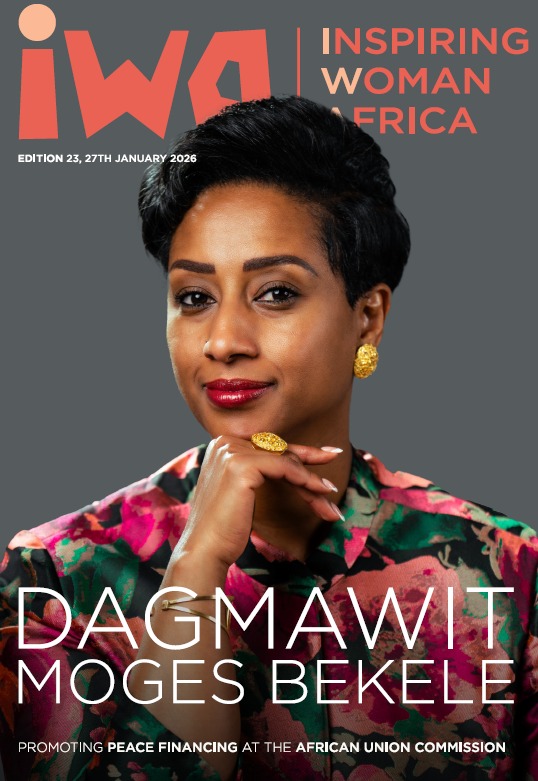
Life has a way of asking us to pause, and for many women, career breaks are that pause. Whether it’s for maternity, caregiving, personal development, or navigating unexpected circumstances, stepping away from the workforce is often a necessary and deeply personal choice.
But the real challenge often begins after the break—re-entering a career, navigating shifts in the industry, and balancing expectations with ambition. Globally and locally, this is a story that resonates with millions of women, and it’s shaping how organisations, families, and societies view career transitions.
Take the story of Funmi, a Nigerian marketing executive who stepped away from her career for three years to care for her newborn twins. While she cherished the time with her children, returning to the corporate world felt daunting. The industry had shifted, digital tools had evolved, and her peers had moved forward. Yet, Funmi approached her re-entry strategically. She leveraged professional networks, enrolled in online courses to update her digital marketing skills, and joined a women-focused career mentorship program.
Within six months, she secured a senior role in a leading FMCG company—this time with even greater clarity about her priorities and long-term goals. Funmi’s journey mirrors countless stories of women globally who take time off and return with resilience, adaptability, and fresh perspectives.
Statistics reveal the scale and significance of this trend. Globally, research from McKinsey & Company indicates that one in three women will take a career break at some point, often for caregiving responsibilities. In Nigeria, although official figures are scarce, anecdotal evidence suggests that many women in urban centers pause their careers for family obligations, education, or health reasons.
What’s more, a 2022 survey by LinkedIn found that nearly 60% of women returning from career breaks reported facing bias or challenges in re-entering, from outdated resumes to skepticism about skills retention. These challenges, however, are not insurmountable—they highlight the need for structured support systems, both in organizations and through personal planning.
Globally, companies are beginning to recognise the value of return-to-work programmes. Organisations such as IBM, Deloitte, and PwC have implemented structured initiatives to re-integrate women after career breaks, offering mentorship, flexible work arrangements, and skills refresher programmes. These programmes are not just benevolent gestures—they are strategic business decisions. Women who return from career breaks often bring enhanced emotional intelligence, problem-solving skills, and resilience, qualities that drive innovation and leadership in the workplace.
In Nigeria, similar initiatives are slowly emerging. Several multinational corporations and local companies now offer flexible working hours, remote work options, and mentorship opportunities aimed at women re-entering the workforce. Beyond corporate structures, networks like the Women in Management, Business, and Public Service (WIMBIZ) provide platforms for skill development, mentorship, and visibility for women navigating career transitions. These networks are crucial in creating an ecosystem where women can confidently plan career breaks without fear of permanent setbacks.
The narrative around career breaks is also evolving. Rather than being viewed as interruptions or setbacks, career breaks are increasingly recognised as periods of personal growth and skill acquisition. Many women use these breaks to explore entrepreneurship, pursue advanced education, or volunteer, adding new dimensions to their professional profiles.
Consider Amaka, a Nigerian lawyer who took two years off to pursue a master’s degree and volunteer with a legal aid organisation. When she returned to corporate law, she brought enhanced expertise, a richer network, and a unique perspective that her firm valued greatly.
Navigating career breaks and re-entry requires intentionality, strategy, and support. Women who plan financially, stay connected with professional networks, and proactively update their skills often return stronger and more focused. Families and organisations that provide flexibility, mentorship, and understanding create environments where women can thrive before, during, and after these transitions.
In the end, career breaks are not career dead-ends; they are opportunities for reflection, growth, and recalibration. For women in Nigeria and around the world, learning to navigate these transitions successfully is both an individual and collective imperative. By embracing career breaks as part of the professional journey—and supporting women in their return—we are not only fostering equity but also enriching workplaces, industries, and the broader economy. The pause, when managed well, can become a powerful catalyst for professional reinvention and lifelong success.
Abiola Adediran is a Family Business Advisor, corporate finance and business strategy expert with nearly 2 decades of work experience that cuts across investment banking, consulting, private equity, wealth and family office management. She is the Founder/Managing Consultant of Midridge International, a pan-African strategy consulting and financial advisory firm. She is also currently a Partner at Genea Family Office.
Latest Posts
-
Jan 27, 2026 From Dream to Done (Pt 2)






